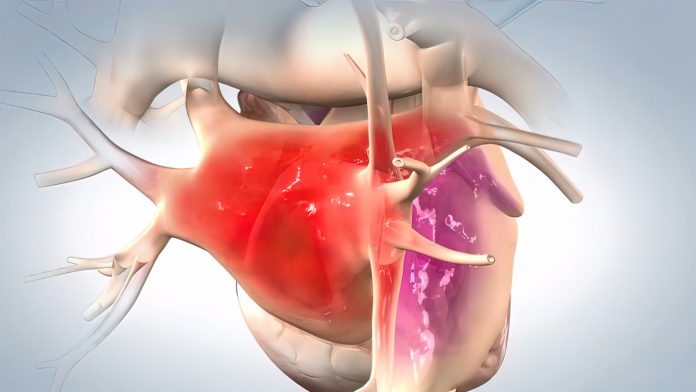
The gut-brain connection has been a fertile area of research for some time and has yielded a plethora of insights into how the microbiome can affect cognition and mental health. Now, a systematic review of research from Georgetown University School of Nursing & Health Studies, published in the journal Heart Failure Reviews, highlights a gut-heart connection. The investigators’ findings show that people who have heart failure have less biodiversity in their gut or have elevated metabolites in their gut, both of which are associated with more hospital visits and a greater risk of death from the condition.
“To diagnose and manage heart failure we rely on certain findings and test results, but we do not know how poor heart function influences the activities of the gut, including the absorption of food and medications,” said Kelley Anderson, associate professor of nursing at Georgetown and corresponding author of the study. “There is now an appreciation of a back-and-forth relationship between the heart and elements in the gut, as clearly the heart and vascular system do not work in isolation—the health of one system can directly influence the other, but clear connections are still being worked out scientifically.”
For their research overview, the investigators looked at seven years of genetic, pharmacologic and other types of research from around the world to generate a broad perspective on how the microbiome can influence heart failure. Using electronic search methods of Medline, Embase, CINAHL, and Web of Science, until December 2021, the team identified 511 heart failure biome investigations between 2014 and 2021, and then winnowed this number to the 30 most relevant articles. The investigators zeroed in on one harmful metabolite, trimethylamine-N-oxide (TMAO), that can be produced by gut microbiota when full-fat dairy products, egg yolks and red meat are consumed.
Citing a lack of strong data from the 30 studies reviewed, the researchers could not pinpoint the effects of diet on the interplay between the microbiome and the cardiovascular system. They did note, however, that nutrition has an effect on overall cardiovascular health, so having the opportunity to explore the impact of diet in relation to the microbiome is a promising area for research efforts.
Anderson said that are a number of current ongoing studies seeking to find ways to lessen the impact of the microbiome on heart health. Therapeutic interventions under study include the use of antibiotics, prebiotics and probiotics—all of which can impact the makeup of the microbiome. Other studies are exploring the effectiveness of intestinal binders which can attach to the harmful elements of the microbiome and help shuttle them out of the gut.
The Georgetown team has indicated it will continue their efforts in this promising area of cardiovascular disease research.
“We are currently developing a forward-looking study to evaluate the microbiome in patients with heart failure. We are particularly interested in the symptomatic experience of patients with end-stage heart failure as well as disease-related weight loss and wasting during this stage of cardiovascular disease,” said Anderson.











